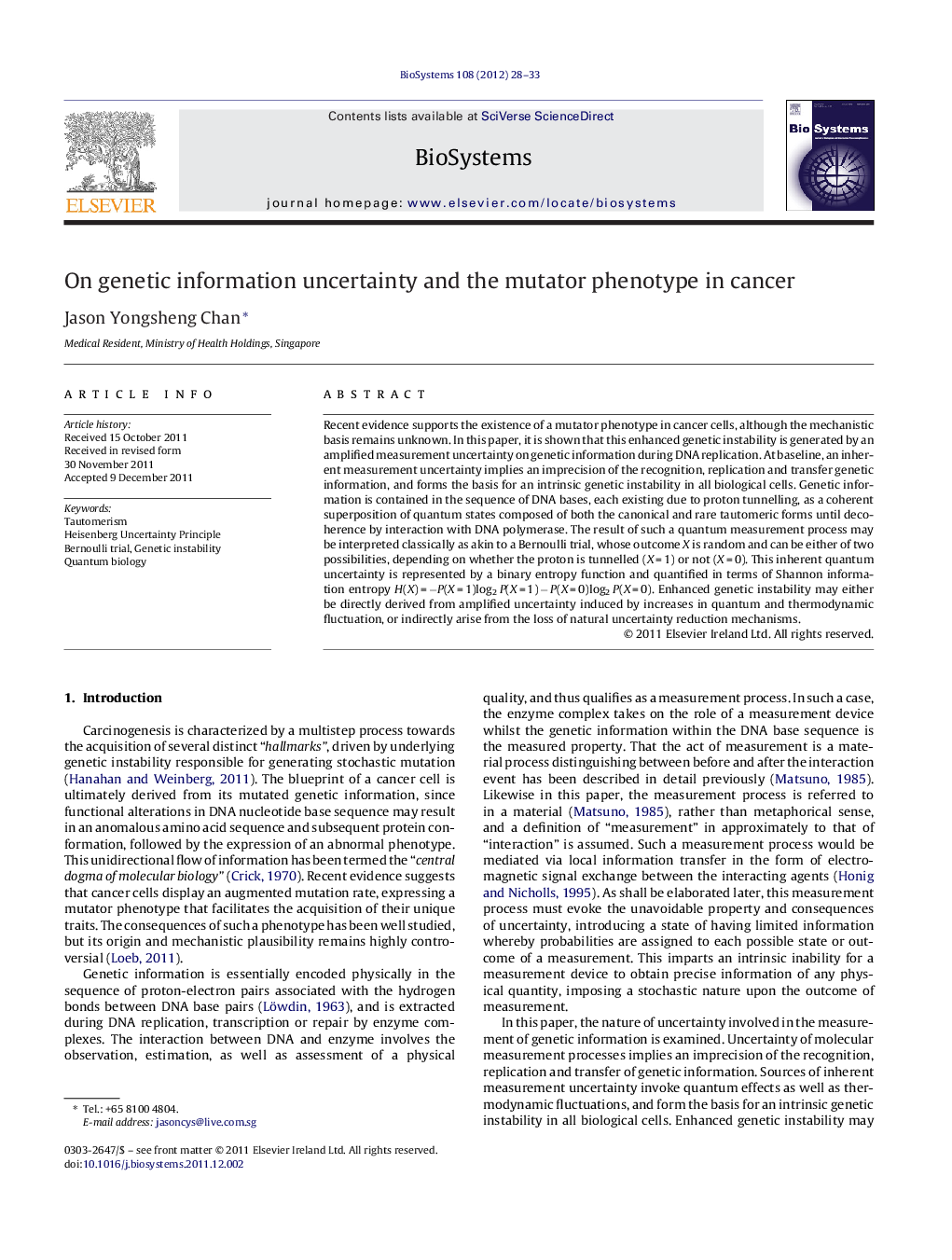| Article ID | Journal | Published Year | Pages | File Type |
|---|---|---|---|---|
| 2076179 | Biosystems | 2012 | 6 Pages |
Recent evidence supports the existence of a mutator phenotype in cancer cells, although the mechanistic basis remains unknown. In this paper, it is shown that this enhanced genetic instability is generated by an amplified measurement uncertainty on genetic information during DNA replication. At baseline, an inherent measurement uncertainty implies an imprecision of the recognition, replication and transfer genetic information, and forms the basis for an intrinsic genetic instability in all biological cells. Genetic information is contained in the sequence of DNA bases, each existing due to proton tunnelling, as a coherent superposition of quantum states composed of both the canonical and rare tautomeric forms until decoherence by interaction with DNA polymerase. The result of such a quantum measurement process may be interpreted classically as akin to a Bernoulli trial, whose outcome X is random and can be either of two possibilities, depending on whether the proton is tunnelled (X = 1) or not (X = 0). This inherent quantum uncertainty is represented by a binary entropy function and quantified in terms of Shannon information entropy H(X) = −P(X = 1)log2 P(X = 1) − P(X = 0)log2 P(X = 0). Enhanced genetic instability may either be directly derived from amplified uncertainty induced by increases in quantum and thermodynamic fluctuation, or indirectly arise from the loss of natural uncertainty reduction mechanisms.
